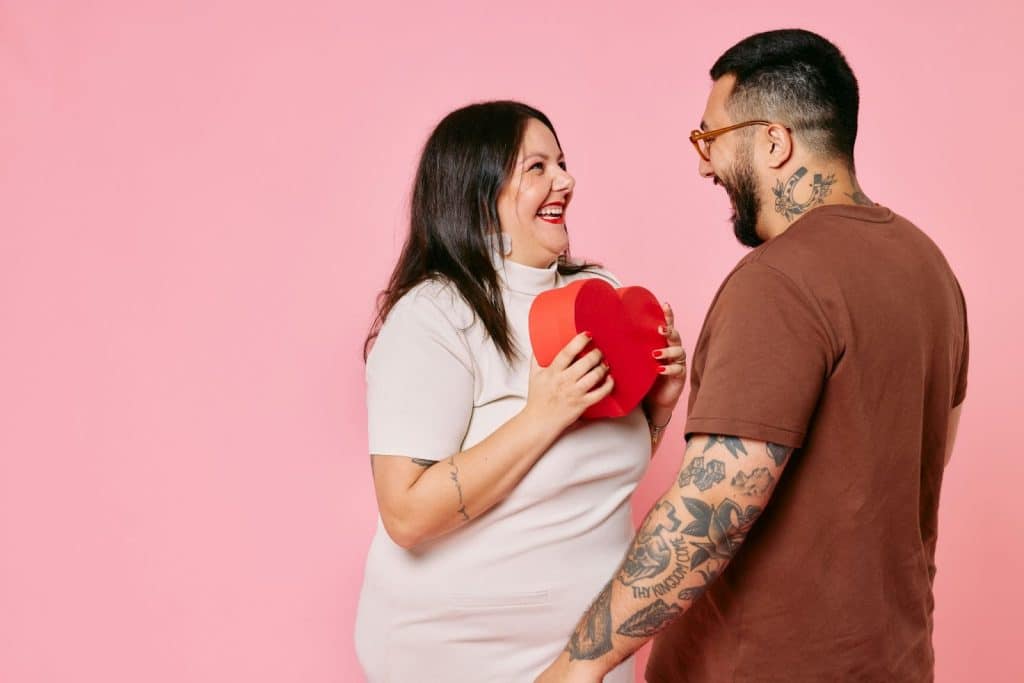
People often say marriage should be 50/50, but that’s rarely how it plays out in real life. Relationships aren’t a math equation; they’re a constant balancing act. One partner may carry more emotional weight during hard seasons, while the other takes charge elsewhere. It’s not about keeping score, it’s about showing up for each other when it counts. Real love flexes, bends, and sometimes goes all-in even when the other can’t. That’s not imbalance, it’s commitment.
Love Isn’t Measured in Equal Chores

One person might do more cleaning, while the other handles repairs or errands. The point isn’t splitting tasks 50/50, but making sure each person feels supported and seen. Dividing labor doesn’t always look symmetrical. What matters is that both contribute in ways that keep life moving. Fairness can be flexible.
Some Days, One Gives More Because They Can

There are days when your partner is emotionally drained, physically tired, or overwhelmed. During those moments, stepping up without complaint isn’t unfair, it’s love. Marriage isn’t a daily scorecard, it’s a partnership that recognizes ebb and flow. On your strong days, you cover more ground. And they’ll do the same when roles reverse.
Emotional Labor Is Invisible, But Heavy

Remembering birthdays, managing social calendars, or noticing when something’s off, these often fall under emotional labor. It’s not always visible but it takes a toll. Being in tune with each other means recognizing when one partner is carrying that invisible load and offering to share it. It’s an 80/20 moment that prevents silent burnout.
Conflict Isn’t Always Split Evenly

Some arguments require one person to lead with calmness, even if they’re upset too. Sometimes, one partner is more emotionally mature or equipped to de-escalate. That doesn’t mean imbalance, it’s strength used for stability. Long-term love means knowing when to lead and when to let the other breathe.
Life Crises Rarely Hit Both at Once

When one partner faces grief, job loss, or health issues, the other often becomes the anchor. During these moments, it’s not 50/50, it’s more like 90/10. But those roles flip over time. A resilient marriage survives because both people know how to temporarily carry more when needed.
You Won’t Always Be In Sync

Emotional needs don’t always align. One might crave connection while the other needs solitude. Navigating these differences with grace, not frustration, is how love deepens. Being willing to give more when the other can’t reciprocate is a sign of maturity, not martyrdom.
Showing Up Without Being Asked

The best partners don’t wait to be told. They anticipate needs, notice fatigue, and offer help. That’s not about doing more, it’s about doing what’s needed in the moment. Quiet acts of service aren’t about fairness. They’re about love in action.
Financial Contributions Aren’t Always Equal

Income disparity is normal in relationships. What matters more is financial transparency, shared goals, and mutual respect. One may earn more, but both can contribute equally through effort, sacrifice, and budgeting. Respect isn’t tied to numbers.
Parenting Is Rarely 50/50

Even the most equal couples find themselves slipping into roles. One might do bedtime more often, the other handles discipline. Rather than compete, strong couples collaborate. Parenting is teamwork, not tallying who did what.
Forgiveness Isn’t Split Down the Middle

Sometimes one partner makes a bigger mistake. Sometimes one offers forgiveness first. What matters is the willingness to heal, not who apologizes more. Grace doesn’t come in equal portions, it comes when it’s needed most.
Mental Health Changes the Equation

Depression, anxiety, or burnout can pull one partner offline. In those seasons, the other might have to carry the household emotionally and physically. That’s not weakness, it’s resilience and love. Mental health shifts demand flexibility, not fairness.
Intimacy Isn’t Always Even

Desire, energy, and emotional availability fluctuate. Meeting your partner halfway sometimes means meeting them where they are, even if it’s 80%. True intimacy is built through understanding, not demands.
Sometimes Support Means Silence

You won’t always have the perfect words. Sometimes showing up means listening, holding space, or simply being present. Giving your full attention when your partner is hurting, even if you can’t fix it, is one of the purest 80/20 gifts you can offer.
It’s About Trusting the Long-Term Balance

One week may feel uneven. One month might too. But in a healthy relationship, things balance out over time. Trusting the long game means you don’t sweat the temporary imbalances. Real partnership isn’t about daily fairness, it’s about enduring love.
Prioritizing Their Needs Over Convenience

Sometimes love asks you to delay comfort, change plans, or adjust expectations. Choosing your partner’s needs over your own, for the moment, doesn’t mean you’re being walked on. It means you value their peace as much as your own.
Being the Planner, Even When You’re Tired

Whether it’s booking appointments, organizing vacations, or remembering dates, one partner might take on more. That’s not a flaw. It’s an example of commitment in the small things. And over time, those small things are what hold the whole relationship together.
Love Requires Generosity of Spirit

Love isn’t fair, and it was never supposed to be. Generosity, emotional, physical, logistical, keeps relationships alive. If both partners embrace an 80/20 mindset when needed, the marriage thrives. It’s not about giving equally all the time. It’s about being generous when it matters most.
Strength Is Found in Flexibility

Rigidity kills intimacy. Flexibility allows room for seasons, emotions, and real life. A strong relationship bends without breaking. Adopting an 80/20 mindset means letting go of rigid expectations and embracing the fluid nature of love.
Conclusion – Real Love Isn’t a Math Problem

Marriage isn’t 50/50, it’s a constant act of generosity, adaptation, and faith in one another. The healthiest couples stop keeping score and start paying attention. Who needs more today? Who’s able to give more? These are the real questions love asks. Because in the end, love is about doing what it takes, not doing what’s “fair.”






Ask Me Anything